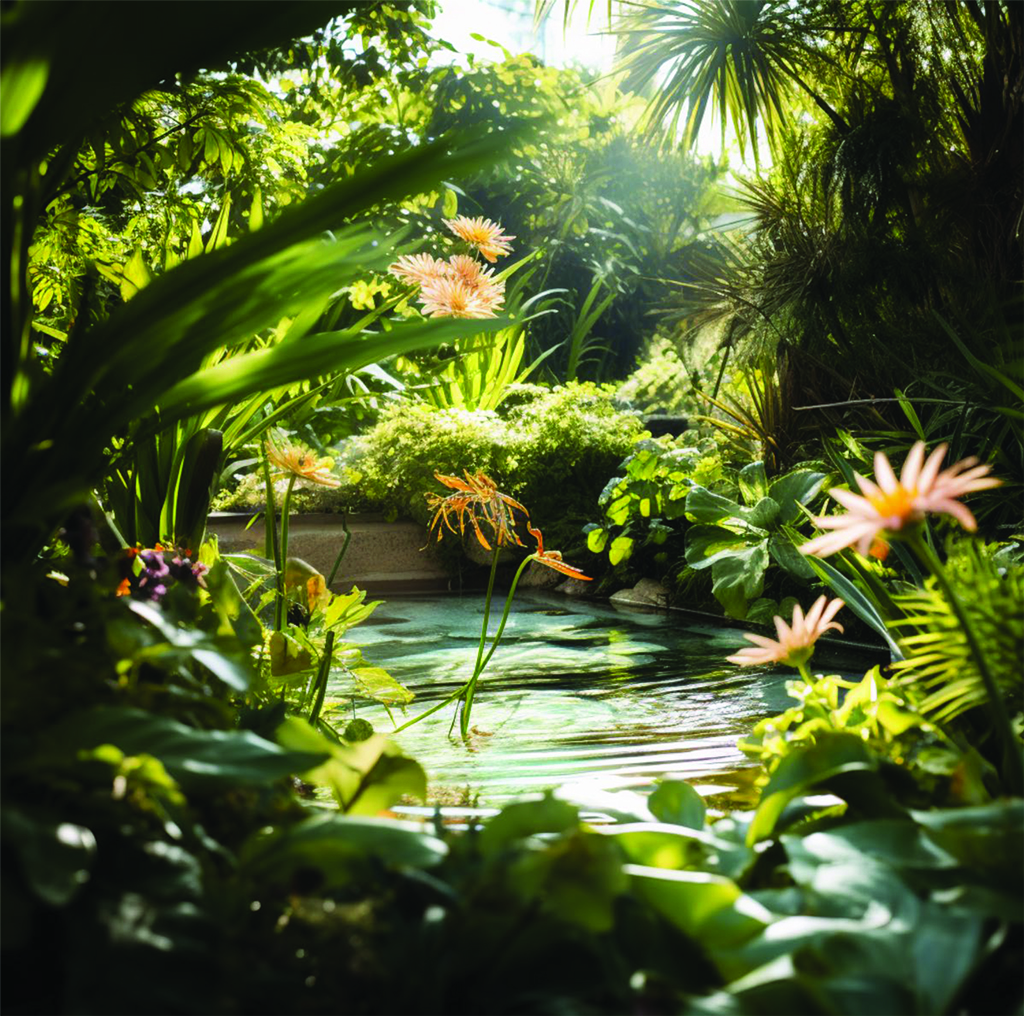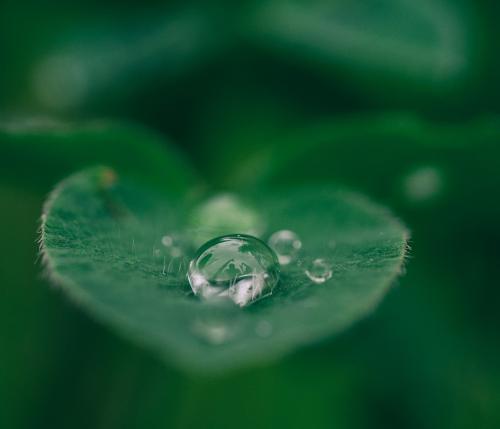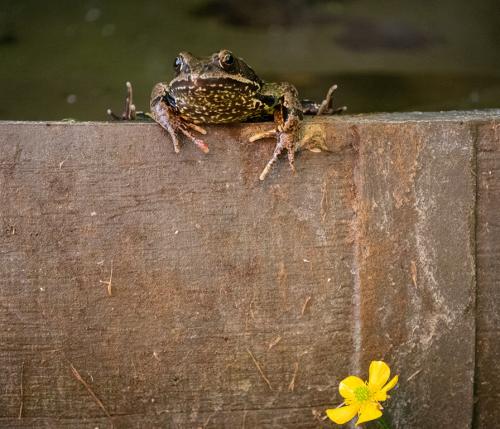Natural swimming pools and ponds have become increasingly popular as homeowners seek a sustainable and eco-friendly way to swim surrounded by nature. Rather than the manufactured feel of a standard swimming pool, natural pools provide an oasis of rustic tranquillity in one's own back garden - and an opportunity for homeowners to think sustainably when adding a luxurious feature to their property.
Rather than relying on chemicals like chlorine to keep the pool clean, these pools use natural filtration from plants and rocks; this makes them ideal for those interested in living with a minimal environmental footprint. Constructed from natural materials like stone and wood, natural pools can be made to blend seamlessly into your garden landscape.
While requiring careful planning and often higher upfront costs, natural pools can provide an idyllic space for swimming, relaxation and reconnecting with nature for years to come.
The rise of the natural pool
It seems that there is a real trend for any kind of swimming that takes us closer to nature; the growing popularity of ‘wild swimming’ in recent years has been mirrored by a greater desire for natural pools and swimming ponds. A big part of this rise comes from a growing interest in sustainability, eco-friendly living, and connecting with nature.
As more people seek to reduce their environmental impact, natural pools offer an attractive chemical-free swimming option. They provide the pleasure of swimming without contaminating the surrounding area or groundwater supply, as well as a range of other benefits. The plants and organic processes that keep natural pools clean also create habitats for wildlife, letting swimmers feel fully immersed in nature.
Spending time in natural surroundings has significant benefits for both physical and mental wellbeing. Natural pools offer a sensory experience of nature engaging sight, sound and smell. The flowing water, chirping birds, foliage, and fresh air all provide respite from urban life and technology overload.
Seeking more natural, rustic designs, homeowners are drawn to sustainable construction materials like stone, wood and clay. Natural pools blend into these natural aesthetics seamlessly. They feed our innate attraction to bodies of water, and the life that teems beneath their surface.
O2 Naturel: How Nature Became Chic in Swimming Pool Design
Natural pools can provide an idyllic space for swimming, relaxation and reconnecting with nature for years to come
What is a natural pool?
A natural pool, also known as a swimming pond, is a sustainable alternative to a standard chlorinated pool. Instead of chemicals, natural pools use plants and natural filtration processes to keep the water clean for swimming.
The pool contains a regeneration zone, which is a shallow planted area through which the pool water is circulated. The plants and beneficial bacteria in this zone filter pollutants from the water, keeping it clean and balanced for wildlife and swimming.
Native aquatic plants are also added throughout the natural pool, helping to create a habitat for wildlife like dragonflies, frogs, birds, and small fish. The choice of plants depends on your climate, but may include irises, lilies, reeds, and rushes. Over time, these plants will multiply and require pruning to avoid overcrowding the pool.
Natural pools require upkeep to ensure proper circulation and filtration, especially in the first few years as the plant roots and bacteria establish themselves. When in balance, the pool can provide chemically-free swimming for 20-40 years before the regeneration zone needs replanting. While a higher upfront investment, natural pools are sustainable and eco-friendly, releasing no chemicals into the surrounding garden and providing a home for nature above and below the water.
Why choose a natural pool?
Natural pools are appealing for several reasons. First, they are a sustainable and environmentally-friendly alternative to regular pools. By using natural filtration instead of chemicals, they do not damage the surrounding ecosystem or contaminate groundwater. They provide a habitat for wildlife and native plants, releasing no pollutants.
Second, natural pools create a peaceful, natural setting for swimming and relaxation. Choosing eco-conscious pools over chlorinated alternatives signifies a commitment to ethical values and the safeguarding of our planet. There is something deeply soothing about swimming surrounded by nature, plants and wildlife. The sounds of birds chirping and leaves rustling in the breeze replace the noises of pumps and filters. As the plants and their foliage grow over time, the pool becomes an increasingly private, tranquil oasis.
Third, natural pools provide an attractive outdoor living space for homeowners to enjoy nature and entertain friends.Whether swimming, sunbathing on the edge or simply sitting beside the pool with a drink in hand, a natural pool becomes a hub of activity and natural beauty in the warmer months.
How to design a natural swimming pool
Designing a sustainable natural pool requires careful planning and consideration of several factors. First, choose eco-friendly building materials suited to your climate like stone, clay, gravel and wood. Opt for solar heating and natural lighting over electricity where possible.
Select native plants, trees, and shrubs that provide natural filtration, shade, and habitat for local wildlife like birds, frogs, dragonflies and bats. The choice of plants will depend on your local environment and pool conditions. They also help the pool blend into the surrounding landscape.
Consider the size, depth, and shape of your pool based on available space and intended use. Freeform, natural shapes integrated into the garden tend to work well. Include a regeneration zone for plant filtration to keep the pool clean without chemicals.
Proper planning is essential to achieve natural balance in the pool, especially in the first years. Work with experts to determine water flow needs, filtration options and recommended plant and animal life based on your climate. Well-planned natural pools, once established and balanced can provide relatively maintenance-free swimming for up to 40 years.
The growing interest in natural pools reflects a broader cultural shift towards sustainable living, environmental awareness and prioritising life's simple pleasures. Busy schedules and technology overload leave many craving time spent outside in natural surroundings. A natural pool fulfils this desire, transforming a garden space into a peaceful oasis for relaxation, entertainment and rejuvenation through the joy of swimming surrounded by nature.
Although not maintenance-free, natural pools offer a lower-upkeep swimming option in the long run compared to standard pools. They can provide many years of chemical-free swimming with minimal effort. For those concerned about sustainability and environmental impact, natural pools offer an eco-friendly solution for enjoying a pool without the guilt.




 Workspace Design Show: 2024 UK Edition
Workspace Design Show: 2024 UK Edition  Open-air elegance: Claudio Bellini x Higold, the symphony of outdoor design
Open-air elegance: Claudio Bellini x Higold, the symphony of outdoor design  A stylish oasis for outdoor spaces
A stylish oasis for outdoor spaces  How to capture your property's best features
How to capture your property's best features